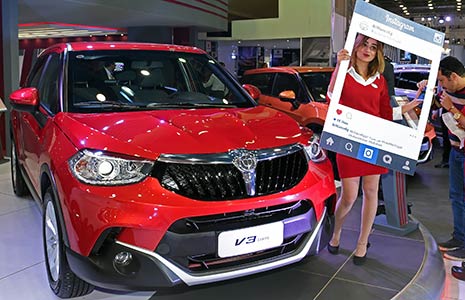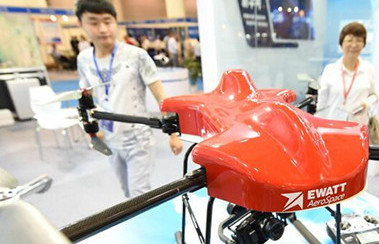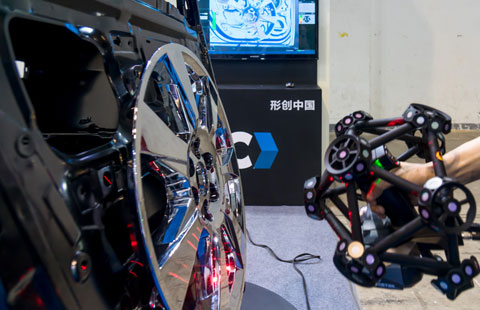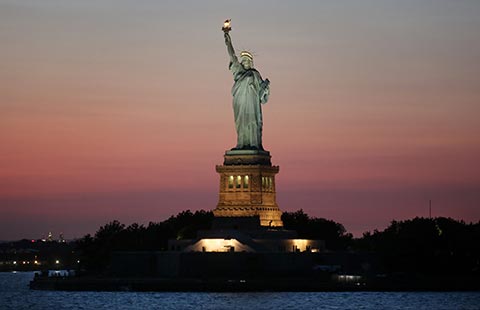Huawei cranks up marketing blitz for image of global brand
(Agencies) Updated: 2016-06-06 08:27
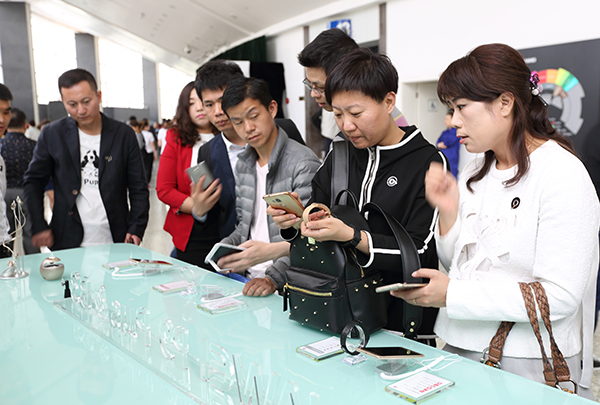 |
|
Customers try out P9 smartphones at a Huawei store in Shanghai. Huawei shipped 108 million handsets last year, the first Chinese company to pass the 100 million mark. [Yang Lei/For China Daily] |
Huawei's phones now are sold in the US only through its website. But it has a potential opening with phone carriers that are the main sales channel and want more products, according to Gartner analyst Tuong H. Nguyen.
Its "deep understanding" of mobile technology "could be leveraged for quick product launches of good quality products," Nguyen said in an email.
That depends on overcoming any lingering security fears.
The US market for Huawei's network gear evaporated in 2012 after a congressional panel deemed Huawei and Chinese rival ZTE Corp potential security threats and recommended Americans avoid doing business with them.
"This makes it difficult for Huawei and other Chinese vendors to penetrate this market," said Nguyen.
Huawei rejects accusations and says American critics have failed to present evidence to back them up. The company is privately held but has begun releasing financial results in hopes increased transparency will ease Western security concerns.
For its part, ZTE has been making a quiet US comeback in smartphones. Its market share grew to 4 percent last year, according to Canalys. It is competing with lower prices, not going after the brand-conscious premium tier where Huawei will face formidable competition from Apple and Samsung in their biggest market.
Founded in 1987, Huawei became the first Chinese supplier to break into the top ranks of a technology industry, where it competes with Nokia Corp and Sweden's LM Ericsson in network gear and wireless base stations. Employees joked that, operating behind the scenes for its first two decades, it was the biggest company no one ever heard of.
Huawei's priority this year is a marketing campaign to "address the No 1 issue that many people don't know the company - especially in Western countries," said Glory Cheung, president of marketing for its Consumer Business Group.
Huawei is cultivating a luxurious image for its smartphones that contrasts with Apple's minimalism, and partnering with luxury brand Swarovski to design a women's smartwatch.
"Not defined the Apple way," said a slide Cheung showed during the April analyst event. It called that style "smart and clean but lifeless, soulless and cut off."
Huawei's venture into consumer devices follows the trail blazed by Nokia Corp in the 1980s when the Finnish switching equipment maker started selling mobile phones.
For two decades, Nokia dominated that market, before fading with the switch to smartphones. Nokia sold its mobile phone unit to Microsoft Corp in 2014 to focus on network gear.
Nokia's disappearance shows the market "can change massively" if a leader makes a mistake, though overtaking Apple or Samsung would be a "highly aggressive target," Peng said.
"It's relatively easy for them to stay at No 3," she said. "But how to move up to another level? It's so much more difficult."
- MSCI hopes to spark buying of Chinese shares
- Forget Beijing, Shanghai, new tech hub is Shenzhen
- Huawei cranks up marketing blitz for image of global brand
- With 3D and VR, Chinese tailor aims to help more find 'perfect fit'
- United Airlines building dream bridges between China, US
- Yantai Xinchao pursues $1b oil deals in Permian Basin
- Waigaoqiao to make China's first luxury liner
- China's Haier goes to Russia with big plan

